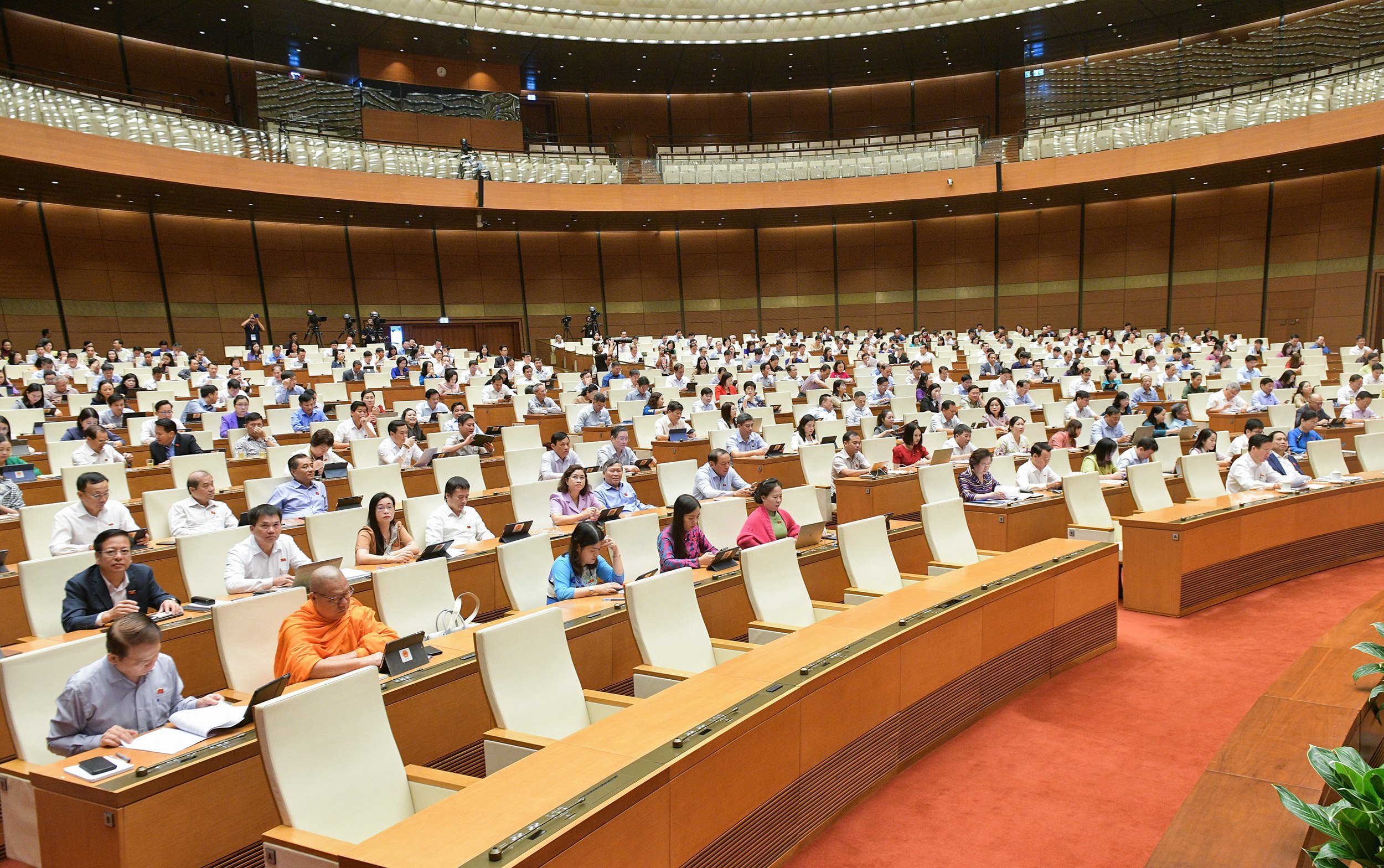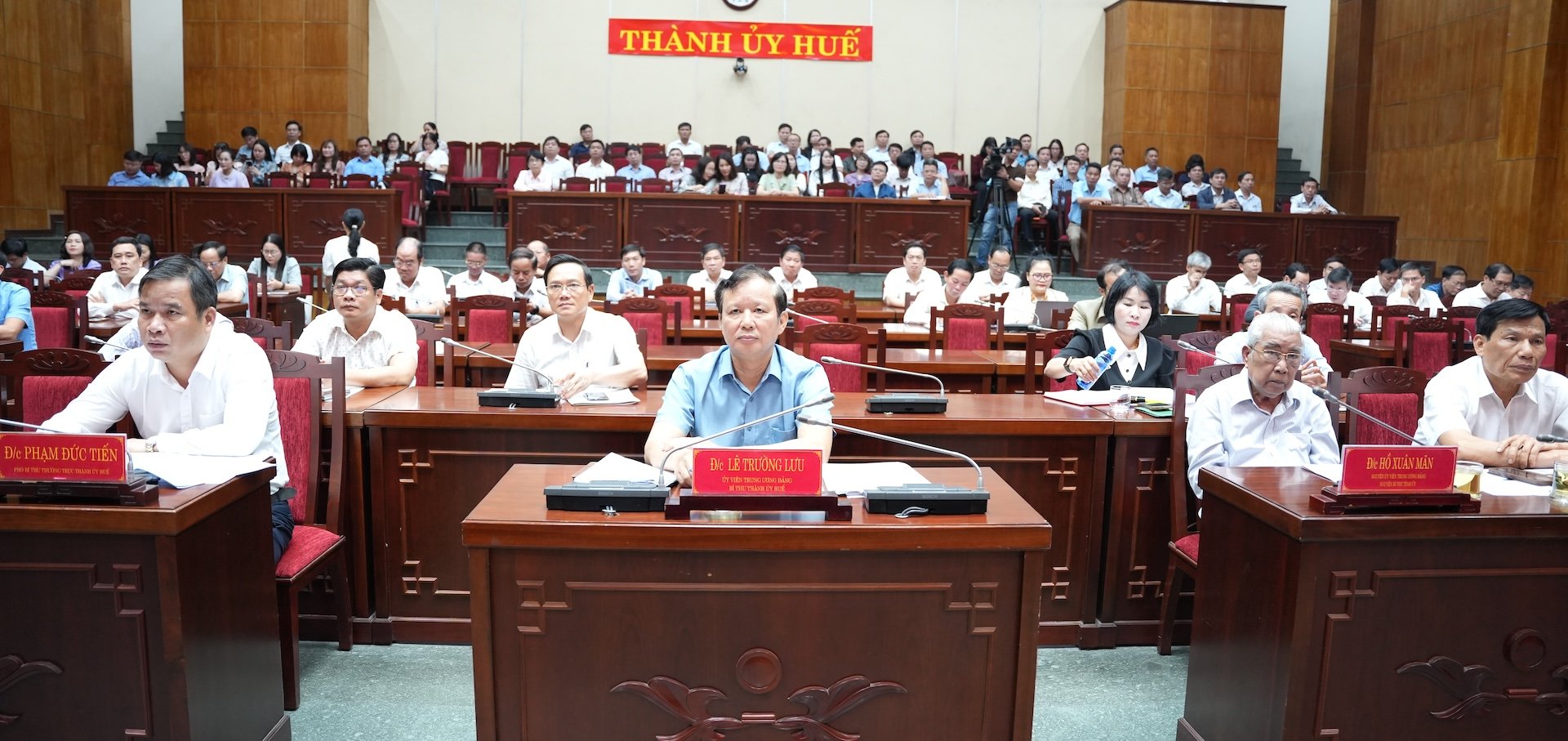Less risky option for customers
Continuing the 6th Session, on the morning of October 31, the National Assembly discussed in the hall a number of contents with different opinions of the draft Law on Real Estate Business (amended).
Presenting the Report on explanation, acceptance and revision of the draft Law on Real Estate Business (amended), Chairman of the National Assembly's Economic Committee Vu Hong Thanh said:
Regarding the principles of housing business and future construction works, some opinions agree on the necessity of regulations on deposits, time of receiving deposits, and deposit amounts in the draft Law.
Some opinions suggested adding a deposit provision to ensure that contracts are signed before the time when the housing and construction works are qualified to be put into business. Some opinions agreed to only accept deposits when "the housing and construction works are qualified to be put into business" and "the transaction has been carried out according to regulations".

Chairman of the National Assembly's Economic Committee Vu Hong Thanh.
Based on the opinions of the Government, National Assembly deputies at the 5th Session, National Assembly delegations, National Assembly agencies, the National Assembly Standing Committee (NASC) proposed 2 options:
Option 1: “Real estate project investors are only allowed to collect deposits from customers when the houses and construction works have met all the conditions for putting into business and have conducted transactions in accordance with the provisions of this Law.”
This option is less risky for the customer, the weaker party in the real estate transaction. Because the deposit is only made when the real estate is qualified for business and the two parties have officially signed the contract, it limits the occurrence of disputes.
The limitation of this option is that the investor does not have the opportunity to receive deposits to ensure signing contracts with potential customers;
Receiving deposits from customers who have signed contracts for the purchase, lease-purchase of houses and future construction works is not a deposit to guarantee the signing of the contract but a deposit to guarantee the performance of the contract according to the provisions of Article 328 of the Civil Code. The meaning of a deposit is no longer too significant because the contract already has provisions on collecting payment for the contract value according to progress and penalty clauses if the parties do not properly perform their obligations.
This option was chosen by the Government and 15/40 opinions of National Assembly delegations and National Assembly agencies.
Option 2: “Real estate project investors may only collect deposits according to the agreement with customers when the project has a basic design appraised by a state agency and the investor has one of the documents on land use rights specified in Clause 2, Article 24 of this Law.
The deposit agreement must clearly state the selling price, lease-purchase price of the house or construction work. The maximum deposit amount is according to Government regulations but must not exceed 10% of the selling price, lease-purchase price of the house or construction work, ensuring compliance with the socio-economic development conditions in each period and each type of real estate.
This option helps investors sign a deposit contract to ensure the implementation of the agreement with potential customers before the real estate is eligible to be put into business.
The limitation of this Plan is that the project has not yet started construction, leading to the customer having to bear the risk; in case the investor carries out the technical design steps, designs the construction drawings, applies for a Construction Permit and carries out the construction for longer than committed, it will affect the customer's rights and may cause disputes. The Standing Committee of the National Assembly requests the Government to supplement the content of the impact assessment for the Plan.
This option was chosen by 20/40 opinions of National Assembly delegations and National Assembly agencies.
Risk of taking advantage of legal regulations
Regarding the conditions for future housing and construction works to be put into business, Mr. Thanh suggested that it is not mandatory to have a Land Use Rights Certificate for the land area for construction associated with future housing and construction works put into business.
The Standing Committee of the National Assembly accepts and adjusts the provisions in Clause 8, Article 24 and technically adjusts Points c and d, Clause 2, Article 14, accordingly: The business of housing and construction works available in real estate projects must have a Certificate of land use rights for the land area built with housing and construction works put into business;
The business of housing and construction works formed in the future does not require a Certificate of Land Use Rights, but it is mandatory to fulfill financial obligations regarding land for the land area attached to the housing and construction works put into business.

National Assembly deputies at the discussion session on the morning of October 31.
Regarding real estate trading floors, many opinions suggest not requiring regulations but only encouraging real estate transactions through real estate trading floors.
The Standing Committee of the National Assembly accepted and revised in the direction of: Removing the provisions on real estate transactions through real estate trading floors in Chapter VII of the draft Law; supplementing Clause 7, Article 8 of the draft Law on State policies on real estate investment and business, accordingly "The State encourages organizations and individuals to conduct transactions of buying, selling, transferring, leasing, leasing houses, construction works and land use rights through real estate trading floors".
The practical summary of the implementation of the Law on Real Estate Business in 2014 shows that current real estate trading floors are not capable enough to ensure the legal safety of transactions, and there have been many cases of real estate trading floors disrupting the market.
"Requiring transactions through real estate trading floors will lead to the risk of taking advantage of legal regulations, not ensuring the implementation of the task of developing a healthy, safe and sustainable real estate market," Mr. Thanh said .
Source


![[Photo] Promoting friendship, solidarity and cooperation between the armies and people of the two countries](https://vstatic.vietnam.vn/vietnam/resource/IMAGE/2025/4/17/0c4d087864f14092aed77252590b6bae)
![[Photo] Closing of the 4th Summit of the Partnership for Green Growth and the Global Goals](https://vstatic.vietnam.vn/vietnam/resource/IMAGE/2025/4/17/c0a0df9852c84e58be0a8b939189c85a)
![[Photo] National Assembly Chairman Tran Thanh Man meets with outstanding workers in the oil and gas industry](https://vstatic.vietnam.vn/vietnam/resource/IMAGE/2025/4/17/1d0de4026b75434ab34279624db7ee4a)
![[Photo] Nhan Dan Newspaper announces the project "Love Vietnam so much"](https://vstatic.vietnam.vn/vietnam/resource/IMAGE/2025/4/17/362f882012d3432783fc92fab1b3e980)

![[Photo] General Secretary To Lam receives French Ambassador to Vietnam Olivier Brochet](https://vstatic.vietnam.vn/vietnam/resource/IMAGE/2025/4/17/49224f0f12e84b66a73b17eb251f7278)


![[Update] - Thanh Hoa: 55 thousand delegates attended the conference to disseminate and implement the Resolution of the 11th Conference of the 13th Party Central Committee](https://vstatic.vietnam.vn/vietnam/resource/IMAGE/2025/4/16/f1c6083279f5439c9412180dda016c15)






















![[Photo] Welcoming ceremony for Chinese Defense Minister and delegation for friendship exchange](https://vstatic.vietnam.vn/vietnam/resource/IMAGE/2025/4/17/fadd533046594e5cacbb28de4c4d5655)




























![[Video] Viettel officially puts into operation the largest submarine optical cable line in Vietnam](https://vstatic.vietnam.vn/vietnam/resource/IMAGE/2025/4/17/f19008c6010c4a538cc422cb791ca0a1)





































Comment (0)